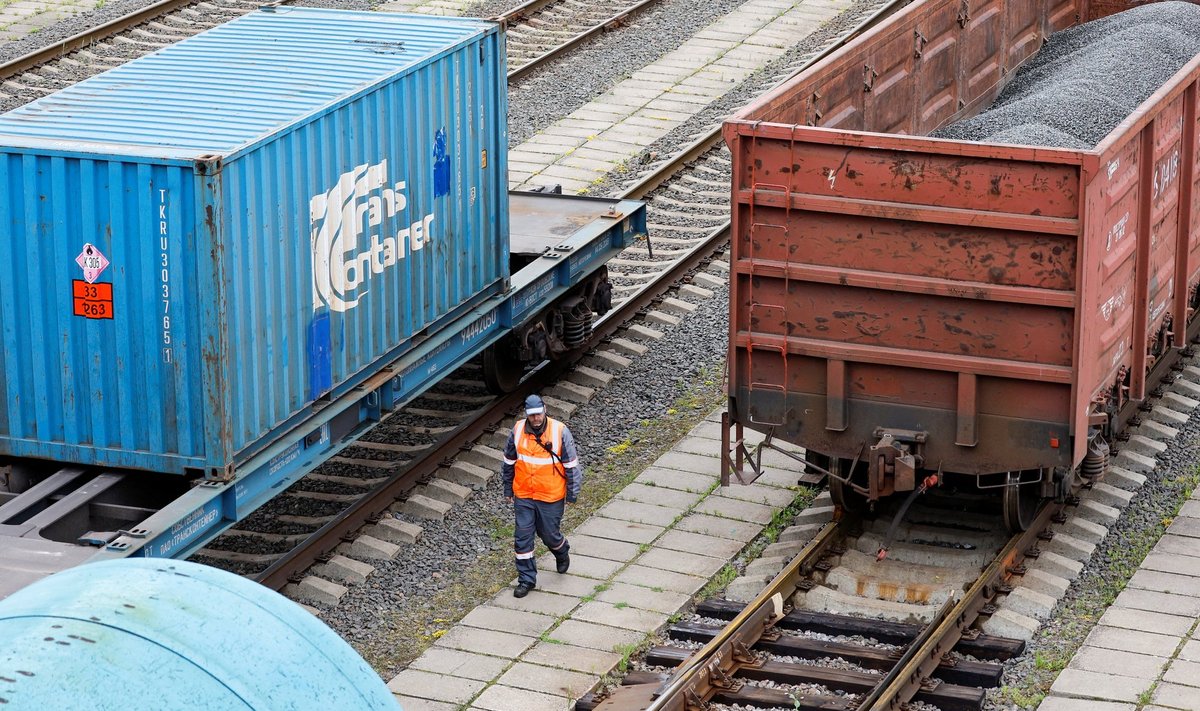"Yesterday, the first train set to cross the territory of Lithuania arrived," Kotryna Dzikaraite, a spokeswoman for Lietuvos Gelezinkeliai (Lithuanian Railways, LTG), the country's state-owned railway company, told BNS on Tuesday.
A spokeswoman for the Customs Department says the train is taking cement from mainland Russia to Kaliningrad, adding that the train is still undergoing checks on Tuesday and has not yet been allowed to enter Lithuania.
"A five-wagon cement shipment from Russia to Kaliningrad is now being checked at Kena border post. The train is still at the post as the key check procedures are underway", Lina Laurinaityte-Grigiene told BNS.
Last Friday, LTG notified its customers about the transportation of transit freight in line with the EC's recently updated guidance.
On July 13, the EC issued its guidance allowing Russia to transport sanctioned goods to and from the Kaliningrad region via Lithuania only for the needs of this exclave and only by rail.
The Lithuanian government's commission on the coordination of international sanctions, recommended to the Ministry of Transport and Communications, the Customs Department and LTG how the transit of these goods should to be controlled.
"The total average quantity calculated on the basis of the 2019-2021 average is 3.1 million tons. The list includes several hundred commodity codes under the EU regulation, and their quantities will be calculated specifically when applications are received," Dzikaraite told BNS.
Last spring, the EU banned the movement of certain Russian goods via the EU territory under several separate sanction packages.
The EU's ban on transporting Russian steel and ferrous metals via the bloc's territory came into effect on June 17 and the one on cement, alcohol, wood, glass, aluminum, paper products, gypsum and ship parts came into force on July 10.
Lithuanian suspended the transit of these goods to Kaliningrad via Lithuania and said it did so in line with the EC's prior guidance that banned transit.
Earlier this month, however, the EC issued its updated guidance that followed Russia's anger over the transit restrictions and threats to retaliate.
